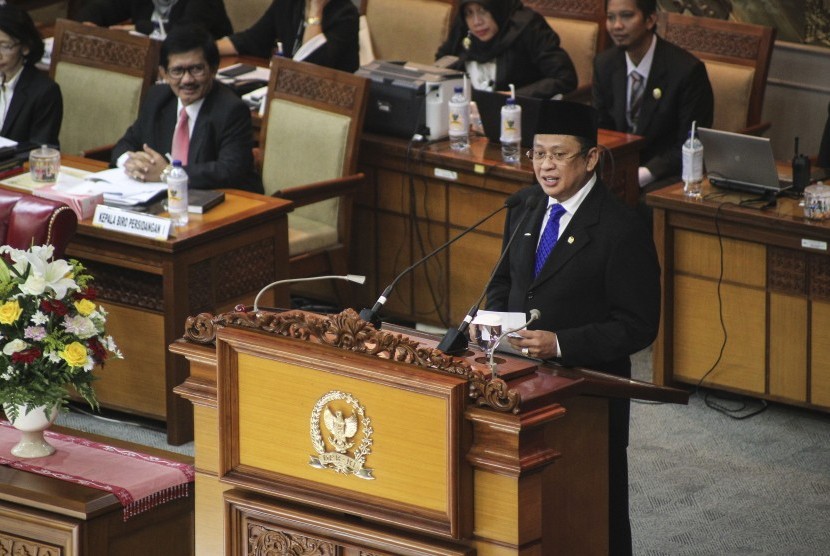REPUBLIKA.CO.ID, JAKARTA -- House of Representatives (DPR) Chairman Bambang Soesatyo has called on the government to review its economic package policy XVI related to the opening of commercial areas in the Negative Investment List (DNI) to protect small businesses (UMKMS). According to him, the latest economic policy package is viewed as not being in line with President Joko Widodo's vision of encouraging and protecting national UMKMs.
"It is not too late for the government to correct or revoke the policy to safeguard the future of small entrepreneurs," Bambang remarked in Jakarta, Wednesday (Nov 21).
Bambang pointed out that the government had issued a policy to support UMKMs by reducing the tax burden and loan interest to as low as 0.5 percent. However, he said that the XVI Economic Policy Package had the potential to threaten the future of small business actors, who should be protected by the state.
Bambang, who is also a Golkar Party politician, further noted the latest economic package targeted several strategic sectors.
The government recently announced its relaxation policy of the DNI, revising Presidential Regulation (Perpres) No. 44 of 2016, as part of the 16th economic policy package. The relaxation of the DNI is intended to boost domestic and foreign investment. Thus, the policy is more promotional in nature.
The relaxation in this business sector was proposed on the basis of a solid reason. For instance, crumb rubber was eliminated from the DNI during the 2012-2016 period, and the number of businesses operating in that sector only increased by one unit, from 201 to 202 units.
Hence, relaxation of the DNI is open to domestic and foreign investment. There is a special provision for UMKM and a provision that restricts foreign investment.



